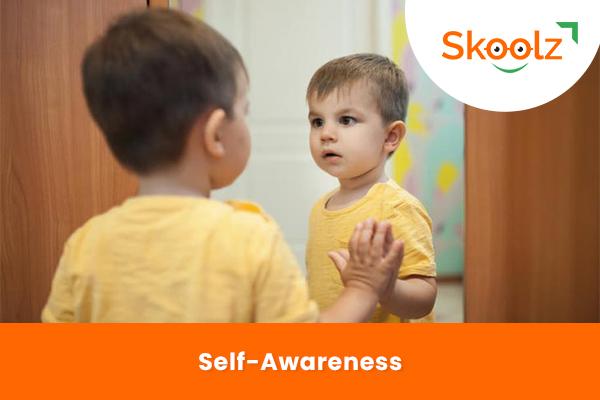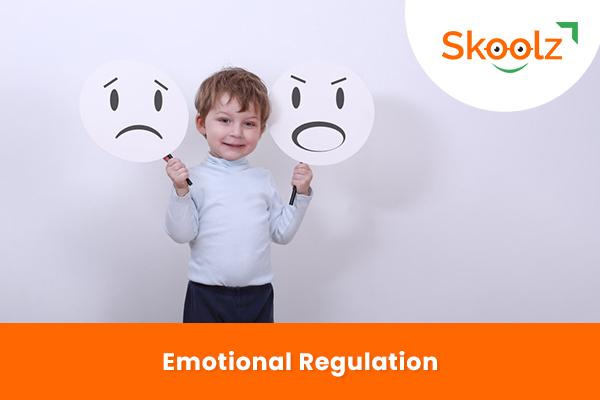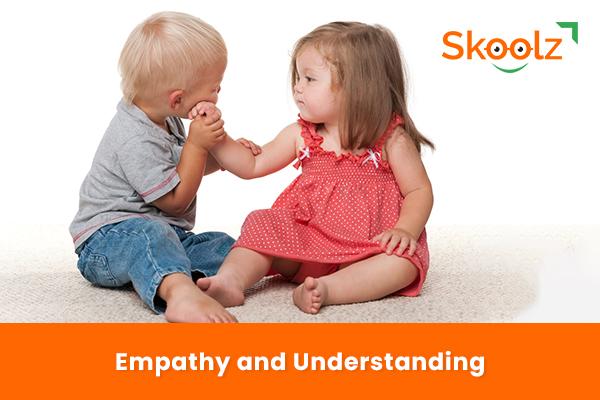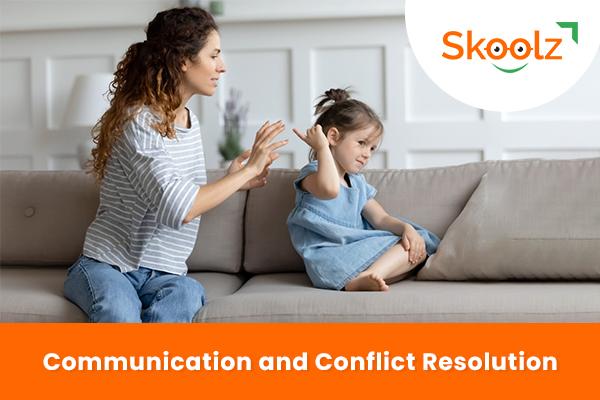
Nurturing Emotional Intelligence: Fostering Emotional Skills in Toddlers
Nurturing Emotional Intelligence: Fostering Emotional Skills in Toddlers
Emotional skills play a crucial role in a toddler's overall development, shaping their ability to understand, manage, and express their emotions. As toddlers begin to navigate the world around them, developing strong emotional skills sets the foundation for healthy emotional well-being and positive social interactions. In this blog, we will explore the importance of emotional skills in toddlers, delve into the key aspects of emotional development, and provide practical strategies to nurture and strengthen emotional skills during this critical stage of growth.
The Importance of Emotional Skills in Toddlers:
Emotional skills are fundamental for a toddler's holistic development and future well-being. Here are some reasons why emotional skills are significant:
1. Self-Awareness:

Emotional skills help toddlers develop self-awareness, enabling them to recognize and understand their own emotions. This awareness allows them to identify and express their feelings, leading to a better understanding of themselves and their needs.
2. Emotional Regulation:

Emotional skills empower toddlers to regulate their emotions effectively. They learn to manage feelings such as anger, frustration, and sadness, developing healthy coping mechanisms. Emotional regulation helps toddlers navigate challenging situations, reduce stress, and maintain emotional balance.
3. Empathy and Understanding:

Emotional skills foster empathy and understanding toward others. Toddlers learn to recognize and respond to the emotions of those around them, developing compassion, kindness, and consideration. This empathy forms the basis for positive relationships and social interactions.
4. Communication and Conflict Resolution:

Emotional skills enhance communication abilities, enabling toddlers to express their emotions and needs effectively. They learn to communicate their feelings using age-appropriate language and engage in conflict resolution in a constructive manner. These skills promote healthy communication and positive problem-solving.
5. Self-Confidence:

Developing emotional skills boosts toddlers' self-confidence and self-esteem. As they become more aware of their emotions and learn to navigate them, they gain a sense of control and confidence in managing their emotional experiences. This confidence translates into a positive self-image and resilience.
Strategies to Nurture Emotional Skills in Toddlers:
Here are some practical strategies to support the development of emotional skills in toddlers:
1. Emotion Identification:
Help toddlers identify and label their emotions by using simple and descriptive language. Use picture books, illustrations, or mirror exercises to facilitate their understanding of different emotions.
2. Emotional Vocabulary:
Expand their emotional vocabulary by introducing words that describe various feelings. Encourage toddlers to express their emotions using words, phrases, or gestures and validate their feelings.
3. Modeling Emotional Regulation:
Be a positive role model by demonstrating healthy emotional regulation strategies. Show toddlers how to calm themselves, take deep breaths, or use positive self-talk when faced with challenging emotions.
4. Create a Safe Emotional Environment:
Foster a safe and supportive environment where toddlers feel comfortable expressing their emotions. Encourage open conversations about feelings and validate their experiences, emphasizing that all emotions are valid.
5. Engage in Emotion-Focused Activities:
Incorporate activities that focus on emotions, such as storytelling, role-playing, or drawing. Use these opportunities to discuss different emotional scenarios, problem-solving strategies, and appropriate emotional responses.
6. Teach Problem-Solving Skills:
Guide toddlers in resolving conflicts or challenges by using problem-solving techniques. Encourage them to brainstorm solutions, consider different perspectives, and make decisions together.
7. Encourage Empathy and Perspective-Taking:
Read books or watch videos that depict diverse experiences and emotions. Discuss how characters might be feeling and encourage toddlers to consider others' perspectives and emotions.
8. Celebrate Emotions:
Celebrate a range of emotions and help toddlers understand that all emotions are a natural part of being human. Avoid dismissing or invalidating their emotions, and instead, provide support and guidance in managing them.
Conclusion: Nurturing emotional skills in toddlers is a significant investment in their overall well-being and future success. By providing a supportive and empathetic environment, teaching emotional vocabulary, and modeling healthy emotional regulation, parents and caregivers can help toddlers navigate their emotions with confidence and resilience. Embrace the joy of witnessing their emotional intelligence grow as they develop self-awareness, empathy, and effective communication skills, setting the stage for a lifetime of emotional well-being and fulfilling relationships.

Bhawana Mohane
Digital Marketer

Nurturing Emotional Intelligence: Fostering Emotional Skills in Toddlers
Emotional skills play a crucial role in a toddler's overall development, shaping their ability to understand, manage, and express their emotions. As toddlers begin to navigate the world around them, developing strong emotional skills sets the foundation for healthy emotional well-being and positive social interactions. In this blog, we will explore the importance of emotional skills in toddlers, delve into the key aspects of emotional development, and provide practical strategies to nurture and strengthen emotional skills during this critical stage of growth.
The Importance of Emotional Skills in Toddlers:
Emotional skills are fundamental for a toddler's holistic development and future well-being. Here are some reasons why emotional skills are significant:
1. Self-Awareness:

Emotional skills help toddlers develop self-awareness, enabling them to recognize and understand their own emotions. This awareness allows them to identify and express their feelings, leading to a better understanding of themselves and their needs.
2. Emotional Regulation:

Emotional skills empower toddlers to regulate their emotions effectively. They learn to manage feelings such as anger, frustration, and sadness, developing healthy coping mechanisms. Emotional regulation helps toddlers navigate challenging situations, reduce stress, and maintain emotional balance.
3. Empathy and Understanding:

Emotional skills foster empathy and understanding toward others. Toddlers learn to recognize and respond to the emotions of those around them, developing compassion, kindness, and consideration. This empathy forms the basis for positive relationships and social interactions.
4. Communication and Conflict Resolution:

Emotional skills enhance communication abilities, enabling toddlers to express their emotions and needs effectively. They learn to communicate their feelings using age-appropriate language and engage in conflict resolution in a constructive manner. These skills promote healthy communication and positive problem-solving.
5. Self-Confidence:

Developing emotional skills boosts toddlers' self-confidence and self-esteem. As they become more aware of their emotions and learn to navigate them, they gain a sense of control and confidence in managing their emotional experiences. This confidence translates into a positive self-image and resilience.
Strategies to Nurture Emotional Skills in Toddlers:
Here are some practical strategies to support the development of emotional skills in toddlers:
1. Emotion Identification:
Help toddlers identify and label their emotions by using simple and descriptive language. Use picture books, illustrations, or mirror exercises to facilitate their understanding of different emotions.
2. Emotional Vocabulary:
Expand their emotional vocabulary by introducing words that describe various feelings. Encourage toddlers to express their emotions using words, phrases, or gestures and validate their feelings.
3. Modeling Emotional Regulation:
Be a positive role model by demonstrating healthy emotional regulation strategies. Show toddlers how to calm themselves, take deep breaths, or use positive self-talk when faced with challenging emotions.
4. Create a Safe Emotional Environment:
Foster a safe and supportive environment where toddlers feel comfortable expressing their emotions. Encourage open conversations about feelings and validate their experiences, emphasizing that all emotions are valid.
5. Engage in Emotion-Focused Activities:
Incorporate activities that focus on emotions, such as storytelling, role-playing, or drawing. Use these opportunities to discuss different emotional scenarios, problem-solving strategies, and appropriate emotional responses.
6. Teach Problem-Solving Skills:
Guide toddlers in resolving conflicts or challenges by using problem-solving techniques. Encourage them to brainstorm solutions, consider different perspectives, and make decisions together.
7. Encourage Empathy and Perspective-Taking:
Read books or watch videos that depict diverse experiences and emotions. Discuss how characters might be feeling and encourage toddlers to consider others' perspectives and emotions.
8. Celebrate Emotions:
Celebrate a range of emotions and help toddlers understand that all emotions are a natural part of being human. Avoid dismissing or invalidating their emotions, and instead, provide support and guidance in managing them.
Conclusion: Nurturing emotional skills in toddlers is a significant investment in their overall well-being and future success. By providing a supportive and empathetic environment, teaching emotional vocabulary, and modeling healthy emotional regulation, parents and caregivers can help toddlers navigate their emotions with confidence and resilience. Embrace the joy of witnessing their emotional intelligence grow as they develop self-awareness, empathy, and effective communication skills, setting the stage for a lifetime of emotional well-being and fulfilling relationships.

Bhawana Mohane
Digital Marketer




